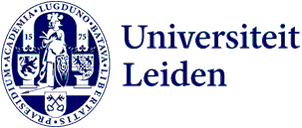
Reinoud Kaldewaij awarded Veni grant to measure brain and body reactions to touch
Part of our social contact is currently online, with no physical proximity. Does digitalisation mean that we are losing an effective way of making contact with one another? This is what Reinoud Kaldewaij will be studying with a Veni grant from the Dutch Research Council (NWO). 'An issue that will be addressed is the importance of mutual trust for appropriate touch,’ says Kaldewaij. Read his answers to five questions.

What will you be able to do with the Veni grant?
We’re all aware that touch plays an important role in our social behaviour, especially with people with whom we feel a connection. With the Veni, I will be able to study whether touch in a social context arouses the same bodily responses and brain processes in a large group of people. The question is whether this will help people achieve a shared goal. I am studying this in people who are friends and in people who don’t know one another. I expect that the process will work better in the first case.
Why have you been awarded a Veni grant?
Even though everyone recognises the importance of social touch in contacts with family and friends, hardly any research has been done on the issue. What happens in biological terms when people hug one another or shake hands? And why does that help in our interaction with one another? We saw during the pandemic, for example, how unnatural it is to completely avoid physical contact. In my research I measure heartbeat, skin conductivity, pupil size and brain activity, and combine the data with the two senses sight and touch. I hope that will give me a complete picture of a social interaction.
How will your research benefit society?
We sense intuitively that touch is important in our contacts with family and friends, but we don’t yet really understand why that is. At the same time, digitalisation means that a lot of social contact is online, with no physical proximity. Does that mean we are losing an effective way of making contact? Another aspect of my research is that touch is also something very personal: if we touch another person, they may find it unpleasant and undesirable. This research will also address the importance of mutual trust for appropriate physical contact.
Who would you like to work with?
I’m conducting this study together with Mariska Kret, who has done a lot of research on synchronising interactions. I also work with a research institute in Linköping (Sweden) that has a lot of expertise on touch; I’ve already carried out research there as a postdoc. And I work with a research group in Aachen, which has extensive knowledge about a much-used technique for measuring the synchronisation of the brain. I’m also looking forward to working with all my new colleagues from cognitive psychology and social psychology at Leiden University.
How are you going to share your research data, and with whom?
Anonymised research data is in principle shared as broadly and as accessibly as possible. As I will be collecting a large dataset with many subjects and many different research measures, I expect quite a lot of interest in working with this data from my network of researchers working on touch and synchronisation.
